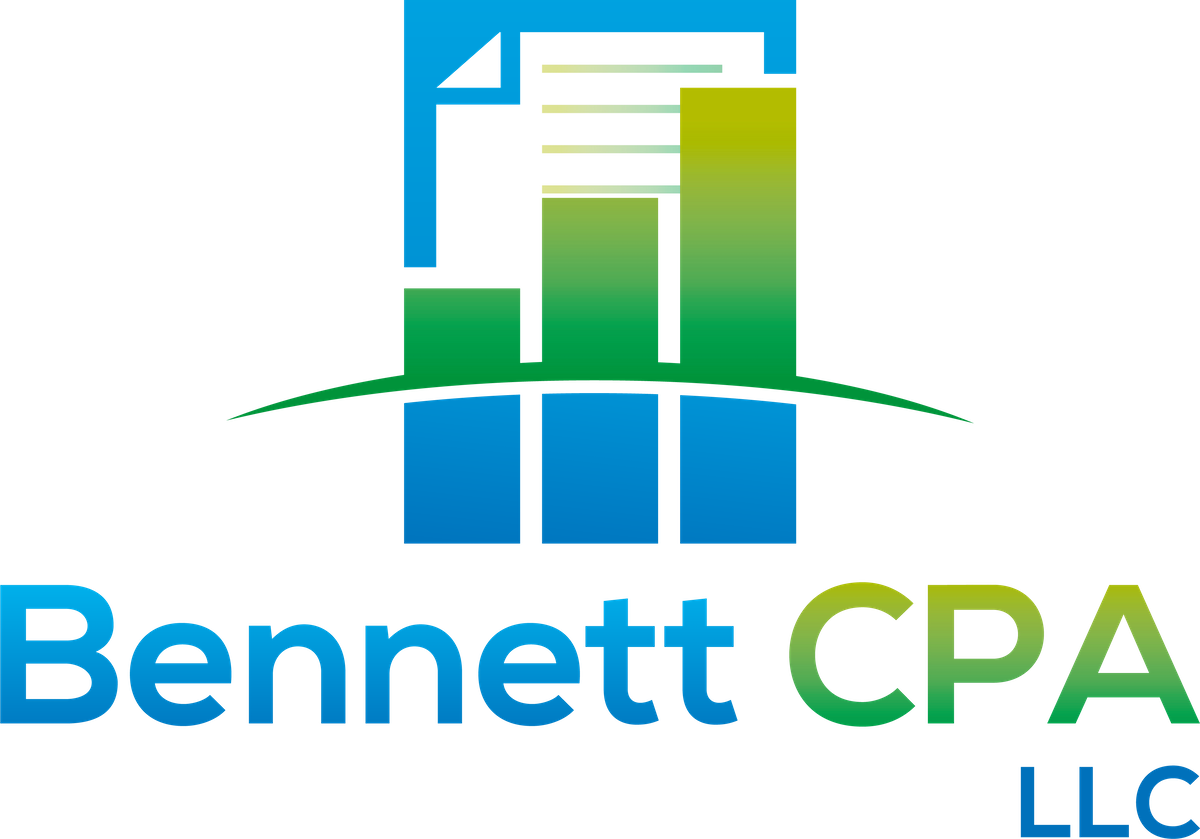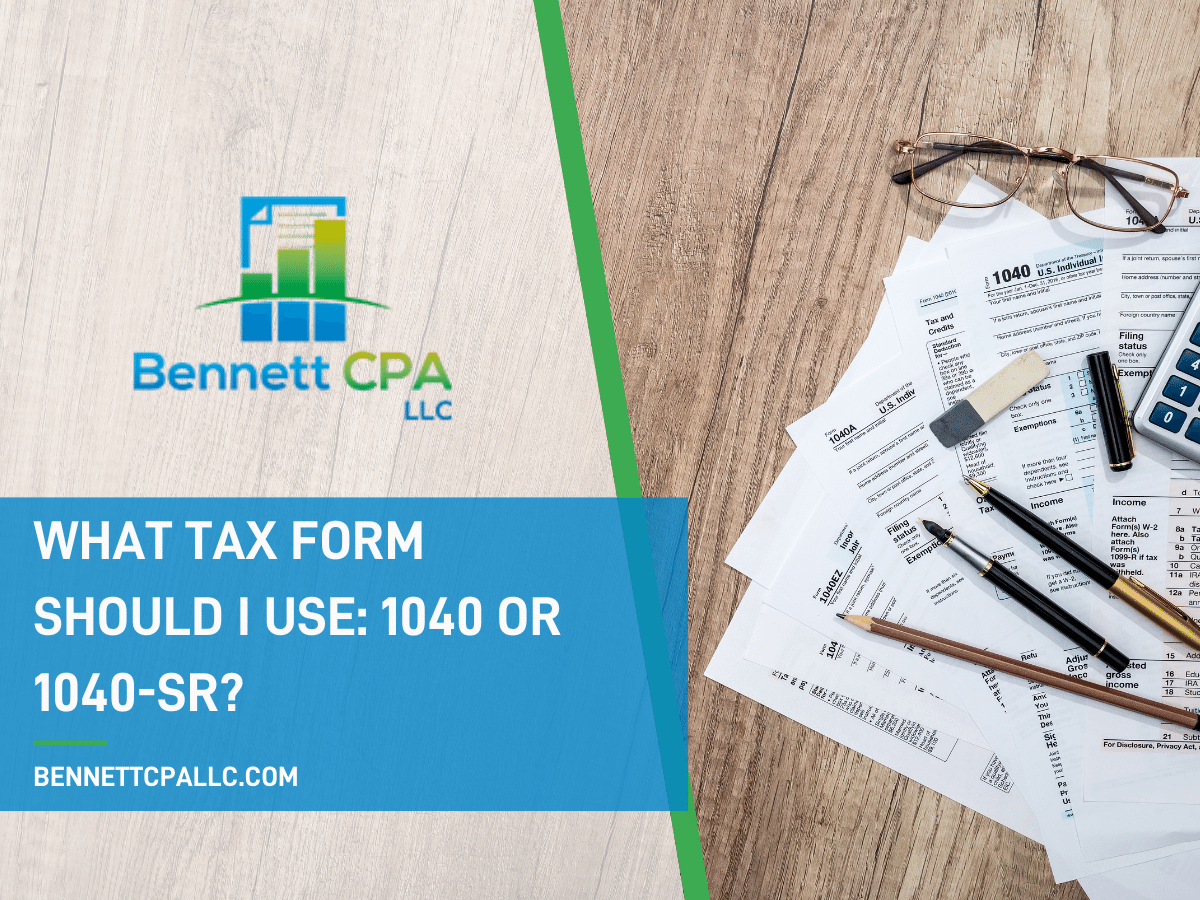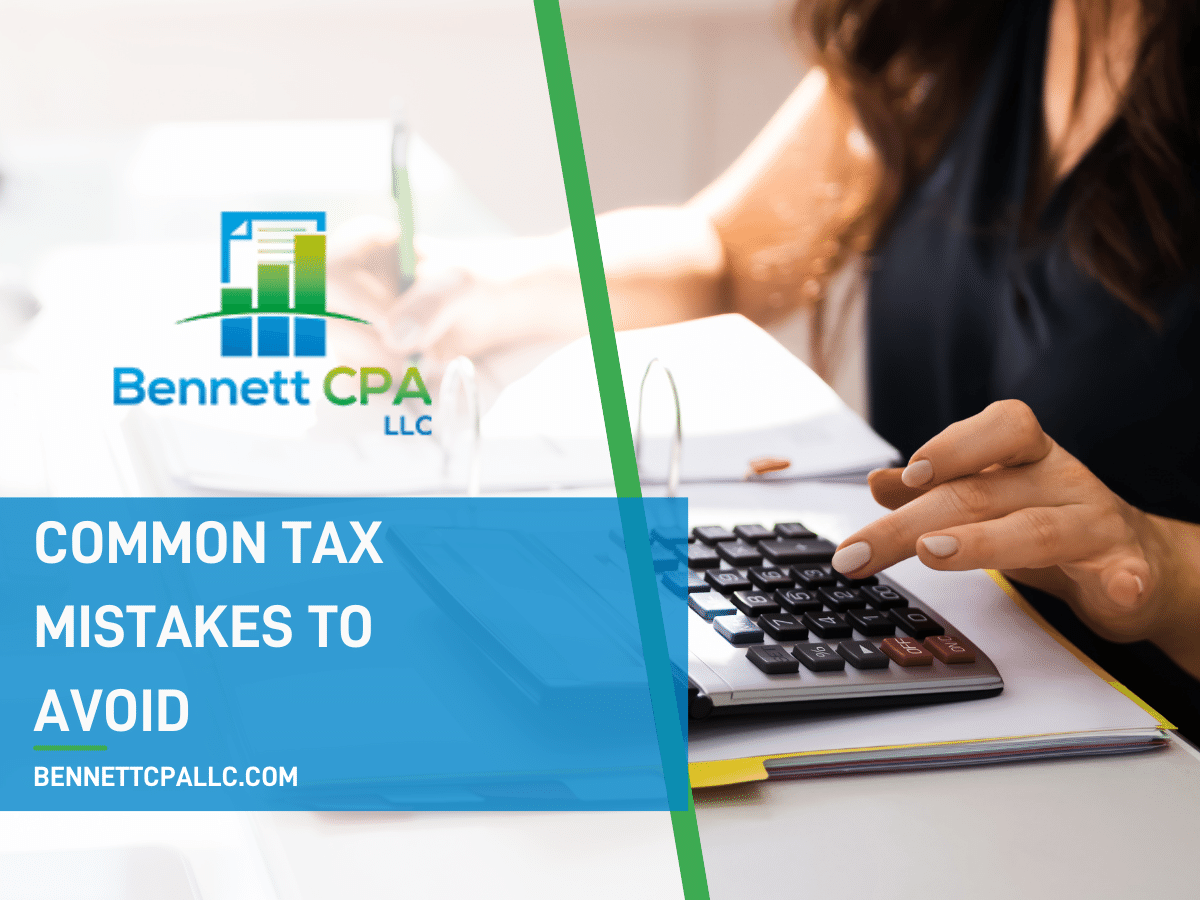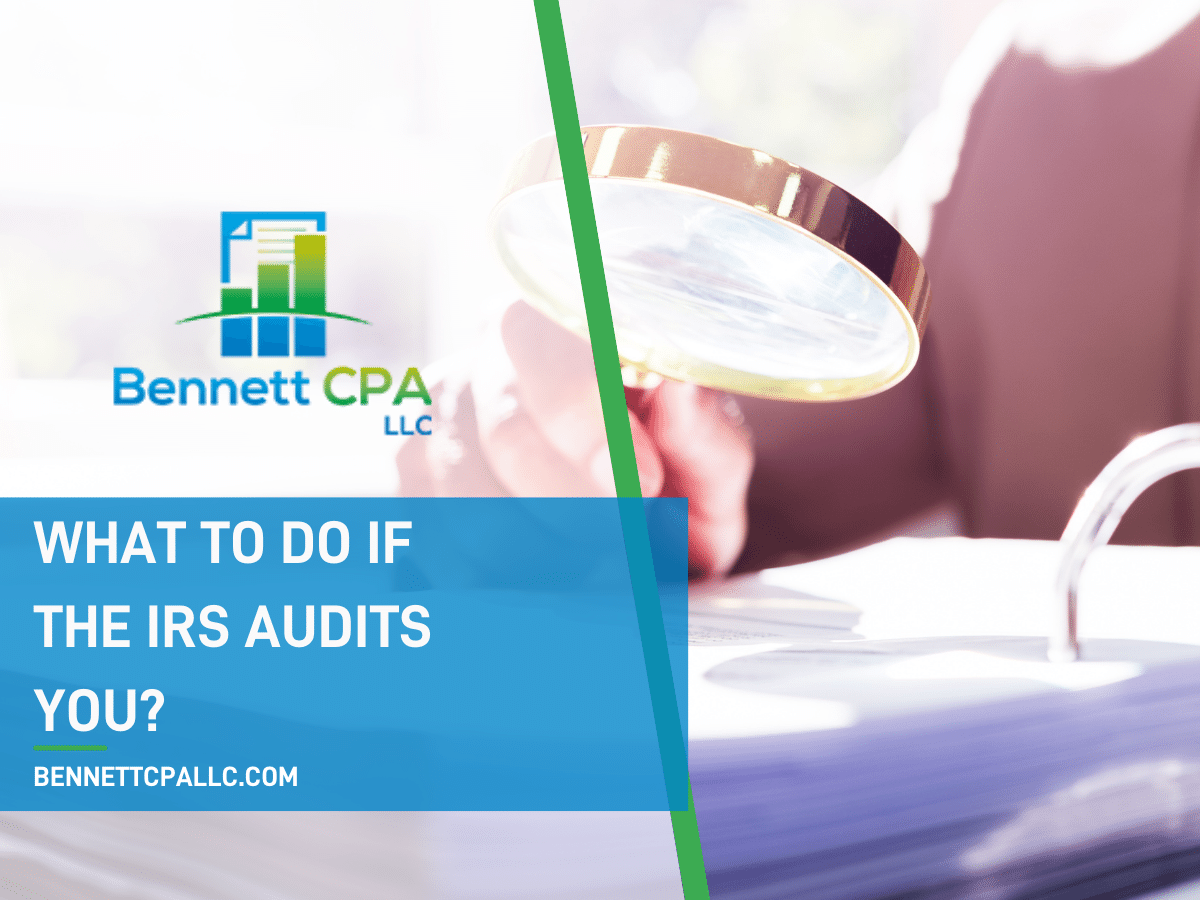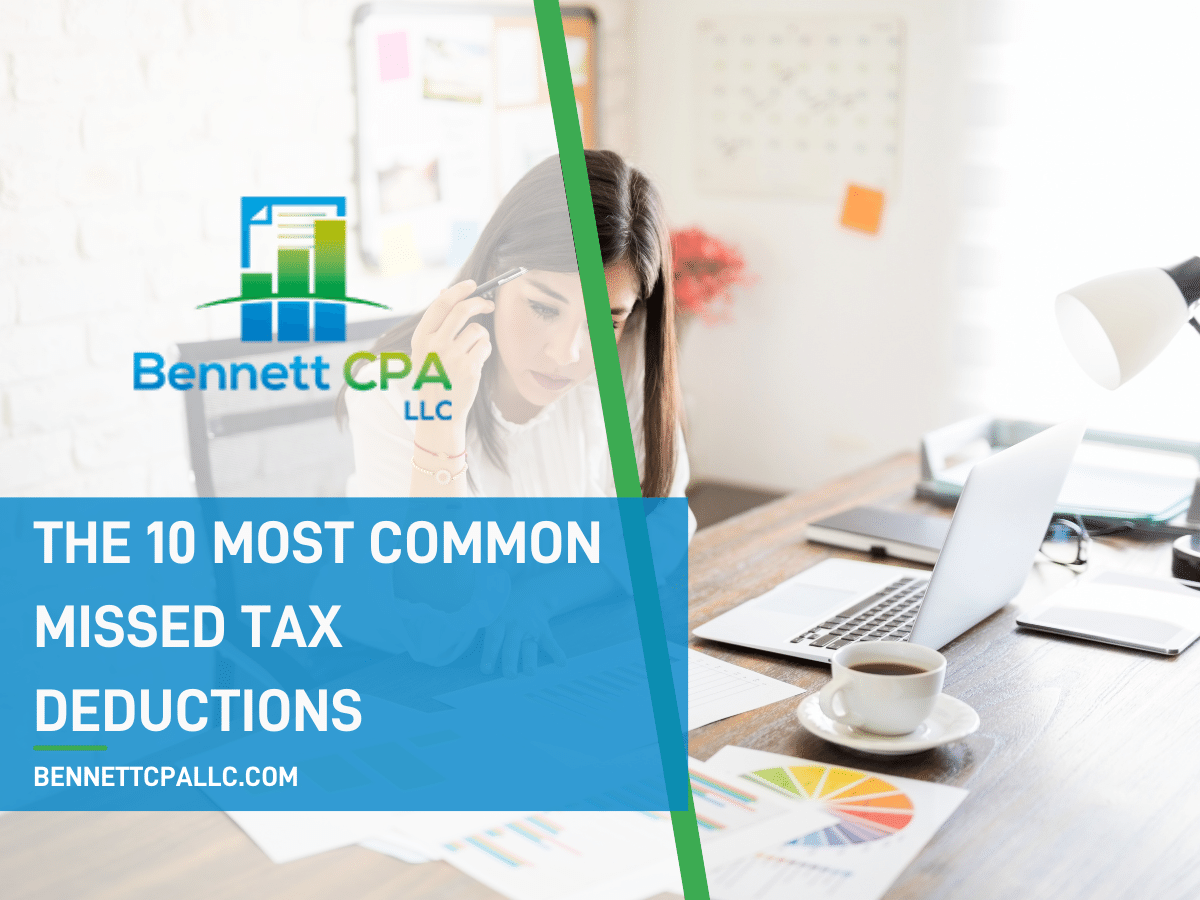Tax season can be extremely stressful for both individuals and businesses, and tax regulations seem to be convoluted and change often. As such, it is sometimes difficult and overwhelming to keep up with the requirements for filing taxes, such as the form you should use to file. At Bennett CPA, Merrill Bennett is on a mission to provide affordable, accessible, and quality tax services to individuals and businesses across Southern Colorado. With years of experience, Bennett is an expert tax professional here to help clarify the differences between the following tax forms: 1040 and 1040-SR.
Starting in the 2018 tax year, 1040-A and 1040-EZ forms are no longer used. Rather, the only forms that remain in use are Form 1040 and Form 1040-SR, but you are still able to use the 1040-A and 1040-EZ forms to file taxes in the years previous to 2018. For current taxes, the following forms are available.
1. Form 1040
Form 1040 is a tax form used for personal federal income tax returns. This form should be used when reporting itemized deductions, complex investments, or other income. Form 1040 can be used to report all types of income, tax credits, and deductions. For example, you must file a Form 1040 if you have any of the following:
- Income from the sale of property.
- Certain types of income, such as unreported income, nontaxable distributions, a partnership or S corporation, or if you are a beneficiary of a trust or an estate.
- Taxes owed for the use of a household employee.
- Tips unreported to your employer.
- You have a foreign account.
- You are eligible for the premium tax credit.
- Your employer did not withhold Social Security or Medicare taxes.
2. Form 1040-SR
In 2018, Congress required the IRS to create a tax form specifically for seniors in the Bipartisan Budget Act with the goal of making it easier for seniors to file taxes. Anyone 65 or older can opt to use Form 1040-SR instead of Form 1040. Filers do not have to be retired to use the form, and if you are married, only one spouse must meet the age requirement in order to file a joint return. While Form 1040-SR is largely the same as Form 1040, this form has larger boxes to write in for those who are filling out the form by hand. Some items that can be reported on Form 1040-SR include:
- Wages, salaries, tips, taxable scholarships, or grants
- Tax-exempt and taxable interest
- Qualified and ordinary dividends
- IRA distributions
- Pensions and annuities
- Social security benefits
- Other taxable income
Like Form 1040, additional forms, such as Schedules 1, 2, and 3, can be used in conjunction with Form 1040-SR to report information not included on your tax return.
Expert Tax Preparation Services | Bennett CPA
At Bennett CPA, Merrill Bennett provides customized individual and business tax services to file your taxes efficiently and accurately and bring you peace of mind. The goal is to save you as much time and money as possible by filing your individual or business taxes. Navigating the complexities of tax compliance and filings is easy with Bennet CPA’s comprehensive tax planning, preparation, and consulting services. Contact Bennett today to set up an appointment or have your tax questions answered!
